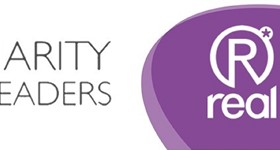Contractors and Self Employed – Tax Avoidance Warning

Real Staffing, part of the SThree group of companies, has recently started to directly engage with our customers on the topic of IR35 and the potential extension of the Off Payroll Legislation into the Private Sector next April.
Within those communications we have touched on a really important topic which is focused on the Umbrella Companies in the UK. Kellie Kwarteng, Partner at SThree UK, decided to share her thoughts on the issue.
Due to a lack of legislation in the Umbrella market, there are some schemes in place being offered which are not compliant. This is leaving the contract / flexible workforce open to personal liabilities on tax. Where agencies or end clients are recommending these schemes, the Criminal Finance Act could see you with some very big fines and potential PR risks.
There has always been a wide choice of Umbrella companies in the UK, however since the introduction of the Off-Payroll legislation in the UK Public Sector market in 2017, there’s been a significant increase of companies entering the market that claim to save them tax, but are in effect tax avoidance schemes. Anyone offering 80% take home, loan schemes or offshore schemes are not operating in the way they should be. It’s important to bear in mind that if it seems too good to be true, it probably is.
The good news is that there are organisations such as the FCSA (Freelancer and Contractor Services Association) who have a list of accredited Umbrella Companies that have been through a strict external audit of their processes and procedures. There are similar setups through APSCo, Professional Passport as well.
What is an Umbrella Company?
An umbrella company is an employer of contractors and freelance professionals who complete numerous different assignments at various locations for recruitment agencies and/or end hirers. The Umbrella enters into an employment contact with the worker, and a service contract with the agency.
What should I look out for or question my umbrella company on?
- 80%+ take home pay or more: For employees, tax deductions alone is roughly 20% at the basic point and then you need to pay NI contributions as well.
- Loan schemes: two payments likely to be made - the first is likely to be compliant with UK Tax and NI legislation, however a second payment is likely to be made by way of a loan, credit or investment which is then not taxed.
- Off Shore Schemes: two payments received when being paid - the first payment will likely be compliant with the UK Tax and NI legislation, however a second payment, likely from overseas, may be paid to you which will not have the correct tax or NI payment deductions.
What are the risks?
Any of the above mentioned schemes in my opinion are very high risk. Anyone who is in such a scheme or is unsure should seek relevant advice from HMRC.
Why I believe they are high risk and why you should take action?
In 2019 HMRC are introducing new legislation to combat tax avoidance via loans specifically, that have been issued via Umbrella companies since 5th April 1999. HMRC have said that any third party loans made after this date will be treated as employment income and will be liable to PAYE and NIC on 5th April.
Currently the HMRC are inviting anyone facing a potential penalty caught by this change to agree to a settlement plan. They have also said that anyone who agrees to a payment plan BEFORE 30th September 2018 will still have to pay, BUT won’t be subject to the loan charge after enforcement in April 2019.
A lot of contractors I’ve spoken to have said, “well how will they enforce this?” and “I might just take my chance!” I understand the thought process from these individuals, however with everything that the HMRC are currently focusing on it seems that tax avoidance of Umbrellas and small service providers seems to be high on the agenda so my closing remark is... is it worth the risk?
Final thoughts
Here at Real Staffing and SThree, we take great steps to protect our customers and ourselves within the supply chain when providing contractors via an Umbrella company. As a FTSE listed global recruitment company, compliance and adherence to the local country's regulations in regards to recruitment is a key priority. With this in mind, we have worked now for a number of years with an approved supplier list of Umbrella companies that we review every two years and put through a strict audit to ensure full compliance with all UK legislation. This process is managed by our SThree UK Commercial Manager, Charlie Cox.
Should you wish to share your thoughts and opinions on this, it would be great to hear from you. Also if you would like any other information from ourselves here at SThree, please do not hesitate to contact me on k.kwarteng@sthree.com. I hope you found this article useful.




